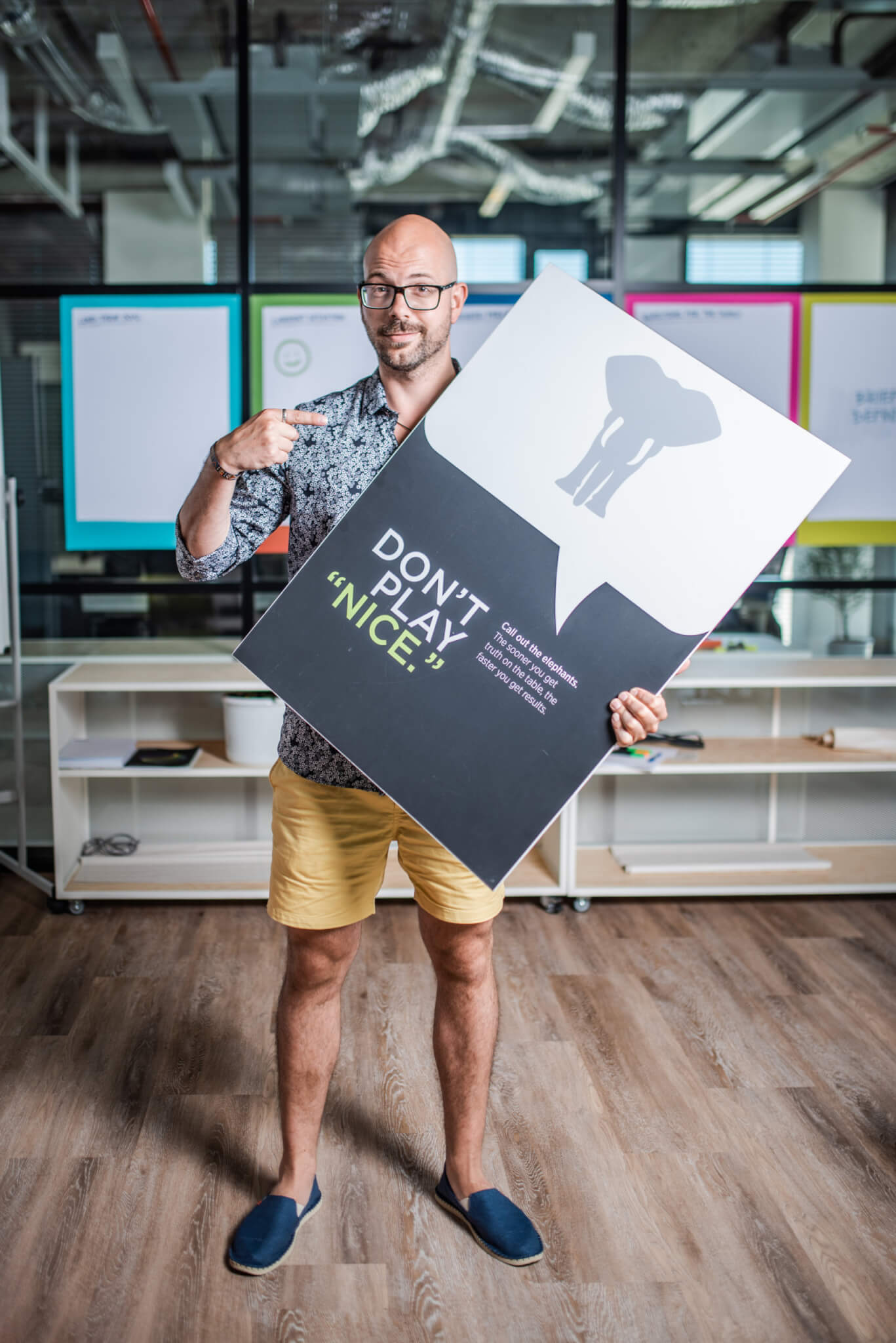Meeting. Status. A principal business instrument on how to move swiftly forward, agree, and allocate tasks in a clear, organised and effective manner. At first glance, the easiest thing which often results in a struggle of ideas, space for definition of positions, and game establishing who is the smarter one. The result is a non-effective ritual which wastes time, sources and brings more complications than steps forward. What is the main reason?
The answer is obvious: it is the culture of traditional firms. In practice, it goes as follows:
Refusal of responsibility
- Nobody is in charge of the meeting process itself. Numerous persons attend the meeting unnecessarily. Most attendants do not know what the objective of the meeting is, where it should be heading and what to make of it. Who attends the meeting and why? What is his/her role?
Excessive thoughtfulness
- The real problems are overlooked as it is not tactful to discuss them aloud. Even though they are often a known secret. As a result, the meeting continues ina vicious circle. It is always the same. Over and over.
Lack of courage to play
- Fear of losing and fear of failure encourages us to use safe ways and patterns. We cease trying, testing, innovating and actually moving forward. We fear expressing ourselves for fear of looking silly and incompetent.
We are individualists
- Common success has been disappearing. Ego and unhealthy ambition forces us to win over others. Even though we have a common goal. The feeling to have a signature under a task or a project is more than a team spirit.
And what is a solution? For an effective and meaningful work in a group, we bring several simple elements in our projects. Set the expectations, rules, roles. Perturb the current atmosphere and provide the meeting with a clear context and structure. Four principal communication settings are sufficient. These are as follows:
- Facilitation– who manages the meeting and moves it forward? Who will ensure that the discussion will not go unnecessarily off topic?
- Ambitions– the key issue is to absolutely clearly share the purpose of the meeting and the wider framework of it with all the attendants.
- Expectations– What must happen for the meeting to actually move forward? What should be its result?
- Roles– explanation of individual responsibilities and expectations from the attendance of all at the meeting…
At the same time, it is necessary to support these general rules by principles that will provide the attendants with an “authorisation” to behave differently. To offer them new possibilities, boost their courage and support it by justification:
- “Don’t play nice”manifesto
Encourages to maximum openness, courage to identify specific skeletons in the cupboard. It helps to avoid beating around the bush and clears the air.
- “Check your edge” manifesto
If we want to make a real move forward, we have to go to the core. Look beyond our limits. Avoid creating a pleasant solution, opt for an effective and
well-functioning one. The more courage we have, the further we go, the more effective the common solution will be.
- “Silent you cynic” manifesto
The opinions of others may bring enrichment to us, open other contexts and perspectives that we were not aware of. For this reason, it is necessary to be open to the opinions and ideas of others. Even though they are against our beliefs.
Yes, it is only a few communication rules. Painful ones. It will take you a long time to get used to them, learn to correctly handle them, but they will bring success over time and significant progress.


